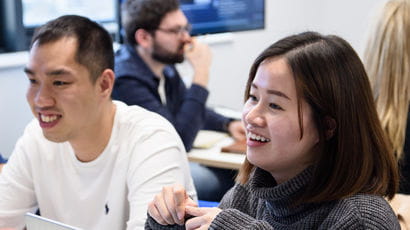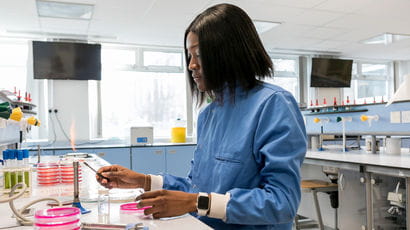Mathematical modelling and decision making for reducing traffic congestion and carbon emissions
Introduction
An opportunity to apply for a full-time PhD in the Faculty of the Environment and Technology, UWE Bristol. The studentship will be funded by the EPSRC:
Ref 2022-OCT-FET05
The expected start date of this studentship is 1October 2022
The closing date for applications is 17 August 2022
Studentship details
Transport is fundamental to the economy. However, it imposes significant costs on society in the form of traffic congestion, road collisions, and health and environmental impacts. Behaviour change and stakeholder collaboration have been acknowledged as necessary to design a successful urban freight transport system. To address challenges in forming an environmentally friendly and economically efficient transport system of the future, by using operational research (OR) techniques, the successful candidate may develop their PhD in one of two proposed directions, depending on the applicant’s interests, in conjunction with the supervisory team.
Firstly, the student might apply multi-criteria decision-making approaches to understand how to design a more sustainable and efficient future urban freight system. Due to the complex nature of the urban freight system, it is important to understand how the different stakeholders can contribute to the reduction of carbon emissions, while ensuring financial sustainability of proposed solutions/scenarios. For these reasons, a multi-stakeholder multi-criteria decision-making model will be defined to evaluate a series of scenarios and alternatives that address needs and expectations of a range of city stakeholders, while reducing carbon emissions due to urban freight. Scenarios might include the use of clean vehicles (e.g., electric vans, hydrogen, cargo-bikes, portairs), freight consolidation, and new technologies (e.g., autonomous delivery vehicles, aerial drones).
Alternatively, the student might develop deterministic or probabilistic models of congestion in infrastructures, such as road networks, with the aim of developing tools for preventing congestion. The well-known Braess' paradox describes situations when adding a new link to a transport network might not reduce congestion in the network but instead increase it. Deeper insight into this paradox from the viewpoint of the structure and characteristics of networks may help transport planners to avoid the occurrence of Braess-like situations in real-life networks and thus prevent congestion in road networks. It is very likely that Braess' paradox may happen in a building during evacuation of people, thus increasing both congestion and evacuation time. This might have a considerable impact on the existing evacuation procedures.
For an informal discussion about the studentship, please email Dr Andrew Smith, Dr Vadim Zverovich or Dr Xiaodong Li
Funding
The studentship is available from 1 October 2022 for a period of four years, subject to satisfactory progress and includes a tax-exempt stipend, which is currently £16,062 per annum.
In addition, full-time tuition fees will be covered for up to four years.
Eligibility
Applicants must have a good first degree in Mathematical Sciences, equivalent to first or upper second class honours. Ideally, applicants will have a Masters-level qualification (either postgraduate or undergraduate).
The studentship is only available to UK applicants.
A recognised English language qualification is required.
How to apply
Please submit your application online. When prompted use the reference number 2022-OCT-FET05.
Supporting documentation
You will need to upload your research proposal, all degree certificates and transcripts and proof of English language proficiency as attachments to your application, so please have these available when you complete the application form.
References
You will need to provide details of two referees as part of your application.
Closing date
The closing date for applications is 17 August 2022.
Further information
It is expected that interviews will take place on weeks commencing September. If you have not heard from us by October, we thank you for your application but on this occasion you have not been successful.
You may also be interested in

Contact the Doctoral Academy
Ways to contact the Doctoral Academy, from postgraduate research support to submitting your thesis.

Fees and funding
View Doctoral Academy tuition fees, project fees, completion fees and resubmission fees.

About the Doctoral Academy
Find out more about the UWE Bristol Doctoral Academy.

Research
Discover how research at UWE Bristol is making a real impact.
